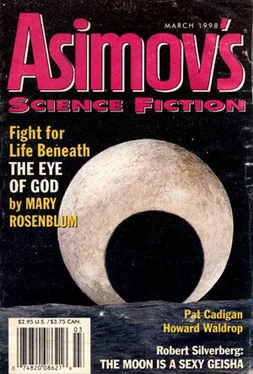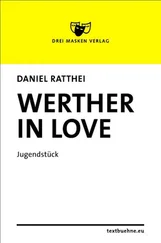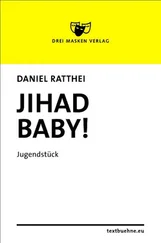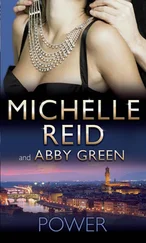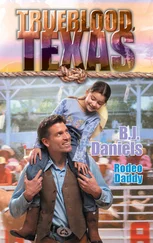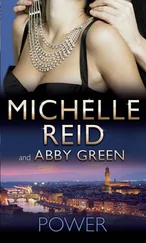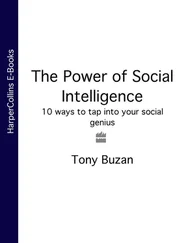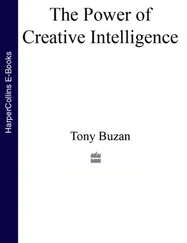Tony Daniel - Radio Praha
Здесь есть возможность читать онлайн «Tony Daniel - Radio Praha» весь текст электронной книги совершенно бесплатно (целиком полную версию без сокращений). В некоторых случаях можно слушать аудио, скачать через торрент в формате fb2 и присутствует краткое содержание. Год выпуска: 1998, Издательство: Dell Magazines, Жанр: Фантастика и фэнтези, на английском языке. Описание произведения, (предисловие) а так же отзывы посетителей доступны на портале библиотеки ЛибКат.
- Название:Radio Praha
- Автор:
- Издательство:Dell Magazines
- Жанр:
- Год:1998
- ISBN:нет данных
- Рейтинг книги:3 / 5. Голосов: 1
-
Избранное:Добавить в избранное
- Отзывы:
-
Ваша оценка:
- 60
- 1
- 2
- 3
- 4
- 5
Radio Praha: краткое содержание, описание и аннотация
Предлагаем к чтению аннотацию, описание, краткое содержание или предисловие (зависит от того, что написал сам автор книги «Radio Praha»). Если вы не нашли необходимую информацию о книге — напишите в комментариях, мы постараемся отыскать её.
.
Radio Praha — читать онлайн бесплатно полную книгу (весь текст) целиком
Ниже представлен текст книги, разбитый по страницам. Система сохранения места последней прочитанной страницы, позволяет с удобством читать онлайн бесплатно книгу «Radio Praha», без необходимости каждый раз заново искать на чём Вы остановились. Поставьте закладку, и сможете в любой момент перейти на страницу, на которой закончили чтение.
Интервал:
Закладка:
Radio Praha
by Tony Daniel

Illustration by Steve Cavallo
In the beginning, there was only smoke. Smoke alone, smoke curling into smoke, swirling over itself, bodying forth from nowhere into nowhere. And by its own curl, its own turn and swirl over, around, through itself, there appeared the first cigarettes.
History arises from the smoke, and not the smoke from history.
I have never been able to tell a tale at a party, or have a joke come off as anything but stilted. The problem is, smoke gets in my eyes. I become fascinated by the forms it takes as it wafts about. I get confused and I digress, and there is no end to it. So if I am to tell you the story of Peter Eastaboga, you must keep this in mind. There is a beginning, and there is a middle, but what is the end?
There is a bar in Prague, in old Vinohrady, where expatriates of a certain type are to be found. It is not reviewed in any of the guidebooks and has never been mentioned in the English language newspaper (or, for that matter, in any of the Czech dailies). It is the sort of place you hear about from a friend of a friend. Practically everyone in Prague, in the Czech Republic, in Central Europe, smokes like there’s no tomorrow. Prague itself smokes, from thousands of ancient furnaces burning cheap lignite coal, from the exhausts of automobiles. I do not smoke. I never have. Most of the time, I don’t mind dying so much, but smoking kills you in a particularly gruesome way. But smoke is why I go to U Mlhy. For the smell. It is a smoky, smoky joint. I never claimed to be a consistent man.
Smoke is also my job. I am a consultant for Briar-Greerson, the American, British, and Dutch agency that handles the advertising for Phillip Morris in Central Europe. After college, I got the hell out of the Midwest, first to Seattle, where a friend of my father gave me my first job in the marketing end of advertising. From there, I began a looping spiral of the United States, taking most of my twenties to reach escape velocity. To California, then St. Louis, then to New York, where I was on the team that introduced Heartland Cigarettes to the “American working woman.” Since I come from redneck stock, I knew exactly what to do. Tractor pulls, beauty shops, bowling alley taverns—you name it, I got our name on the walls, the ashtrays, the cocktail coasters.
After Heartland was established, Briar-Greerson offered me the job in the Czech Republic. I took them up on it, and got the hell out of the entire Heartland.
I am the Marlboro Man. I think of new ways to get the guy into the faces, and the psyches, of good Czech citizens. I am the one who sells the shops their signs, the signs that have the shop names written in very small type under the big red letters, in English, “Come to Marlboro Country.” I am the person who finds new places to put up illegal billboards. In public parks? Why not? Officials can be bribed. In a widow’s meager yardlot? Why not? The rent we pay her, practically nothing to us, doubles her pension. I am the one who buys air time between the American shows, dubbed into Czech, that fill Prague television. I place the ads on Kiss 98 FM, nejlepSi hudba from the sixties to the nineties. It’s an incredibly easy job, and it gives me plenty of time to spend in taverns and kavarnas. That is how I ended up finding the U Mlhy.
For practical purposes, you can divide the ex-pats in Prague into three classes. First, there is the bohemian crowd, “bohemian” with a small “b,” please. These are the hippies, artists, small-time journalists, and wannabe writers. They crowd places such as the FX Café or the Globe Coffeehouse, up in Holesovice. Then there is the international business community, who visit the deracinated, neon-lit hotel bars and pubs of the Nové Město. These groups interact a great deal more than you might expect. The ex-pat hucksters need the feel of romantic legitimacy, since they are not making the kind of salaries they would back home. “At least I’m in Kafka’s Prague,” they tell themselves. The hippies need real jobs every once in a while in order to buy dope. Both groups know enough Czech to order from the menus, and that is all.
And finally, there are… the others. We are the bleed from the first two groups, the droplets from the hard squeeze. The malcontents, the disappointed, the marginal, the hardpan scratchers. This is where you’ll find the one-man importer-exporters who run their business out of seedy apartments. Here is the cheap dope the hippies are forever searching for, and never manage to find. Here are the mid-level business people who either don’t care for the power lunch or for whom it would do more harm than good. Somehow or another, usually through necessity, we have managed to learn the language. The U Mlhy collects us like old cobweb. There is no spider anymore, but you’re stuck, nonetheless.
The waiter said that Peter Eastaboga lost his wife in childbirth just before the Revolution. And he killed a man, too, said the waiter, a man who was once highly placed in the KGB. They say it was because of a drug deal, but it was over a woman. I know this because he told me himself, the waiter said.
I think he is a little crazy since his wife died. He comes in here and talks to his wine glass.
He does what?
He talks to his wine glass. And he smokes like few men I have ever seen. One off the tip of the other.
At the U Mlhy, you heard such stories about Peter Eastaboga. You sat down in the old furniture and listened to its joints creak as you settled. The chairs were upholstered in faded ruby reds and vermilions, tattered, with the frames of the chairs poking out like bones. The tables were mismatched with each other and with the chairs; they were coated three layers thick with battered lacquer. You took out a novel, probably a detective story, and began to read. But then someone you knew, or at least someone who was familiar to you, would come in. He’d look at you, raise an eyebrow. You’d motion with your head to the chair across the table, and he’d sit down. He would light a cigarette, pull the ashtray across the scratched tabletop. You’d set down your book, open faced, beside you, as if you meant to take it up again in a moment. Then the other would breathe out, and begin to talk.
“Summer’s coming. It’s gonna be hot as hell.”
“Um hmm.”
“The Smíchovské Nadraži metro terminal is air conditioned, you know.”
‘You could go there for lunch. Bring a parek v rolicku. Get out of the sun.”
“I have to be in Hrádec Králové tomorrow. Meeting a guy about a load of snake anti-venom from Azerbaijan, if you can believe it.”
“They have poisonous snakes there?”
“Adders, I guess. Eastaboga would know. Haven’t seen him in a while, though.”
And then you would hear about Peter Eastaboga, who, during one civil war or another, ran a load of medical supplies to the Caucasus and traded them for Mushm textiles to sell to upscale rug shops in the States.
Or the time Eastaboga got the chief hit man for the Warsaw mafia out of a jam with his boss’s wife.
“He got offered exclusive rights to freight-forward Czech cigarettes to Warsaw. Exclusive. But he turned it down. Said he couldn’t stand the dirty drag you get from a Petra.”
“You don’t have to smoke them,” the hit man told him. “Just make money off of them.”
“ ‘I don’t trade in things I wouldn’t use myself. It’s my only principle.’ That’s exactly what Eastaboga said. That guy, the hit man, he comes in here sometimes, and he told me this himself. Jesus Christ, I’d go out of business in a day with that kind of principle.”
Читать дальшеИнтервал:
Закладка:
Похожие книги на «Radio Praha»
Представляем Вашему вниманию похожие книги на «Radio Praha» списком для выбора. Мы отобрали схожую по названию и смыслу литературу в надежде предоставить читателям больше вариантов отыскать новые, интересные, ещё непрочитанные произведения.
Обсуждение, отзывы о книге «Radio Praha» и просто собственные мнения читателей. Оставьте ваши комментарии, напишите, что Вы думаете о произведении, его смысле или главных героях. Укажите что конкретно понравилось, а что нет, и почему Вы так считаете.
